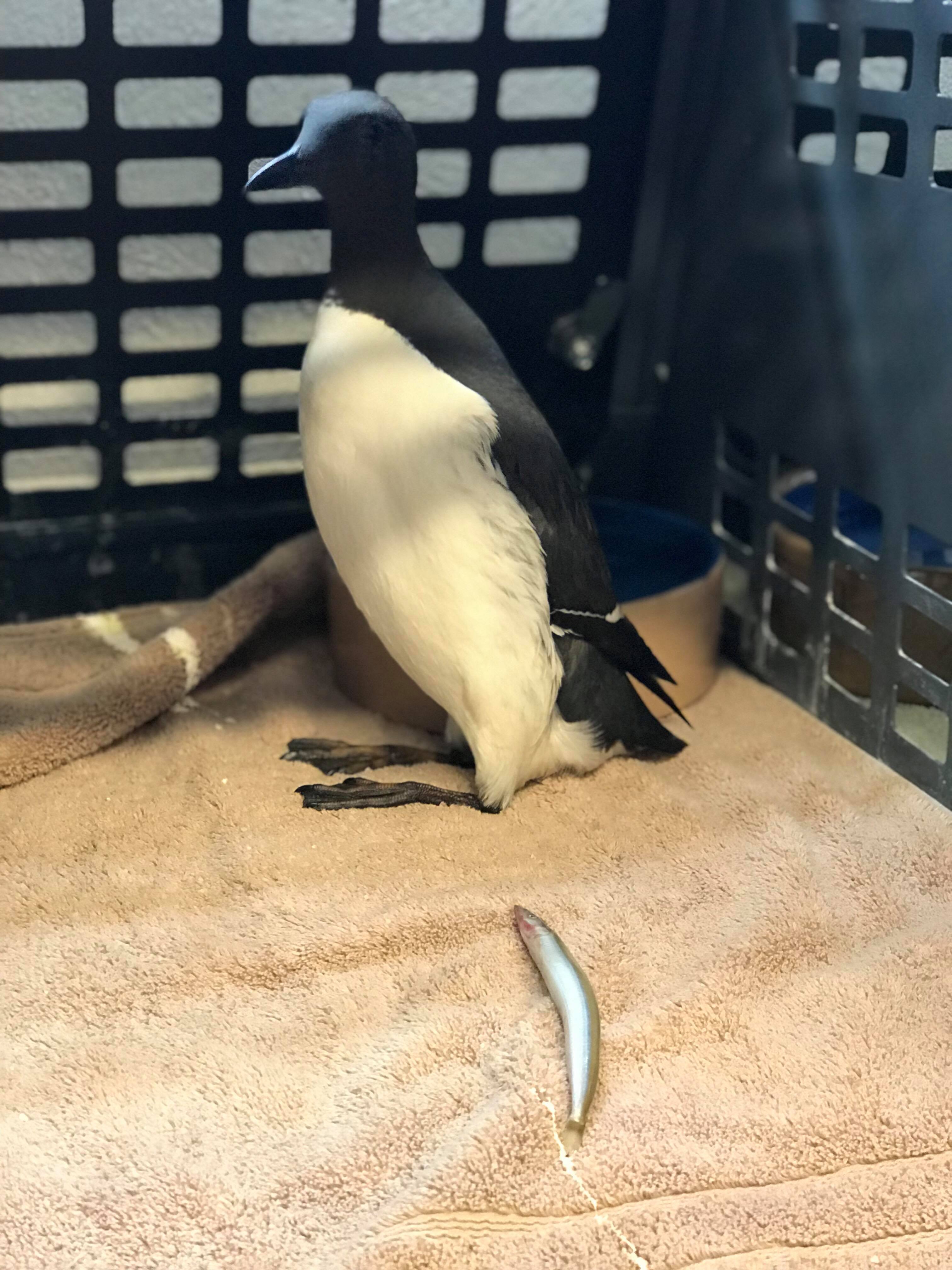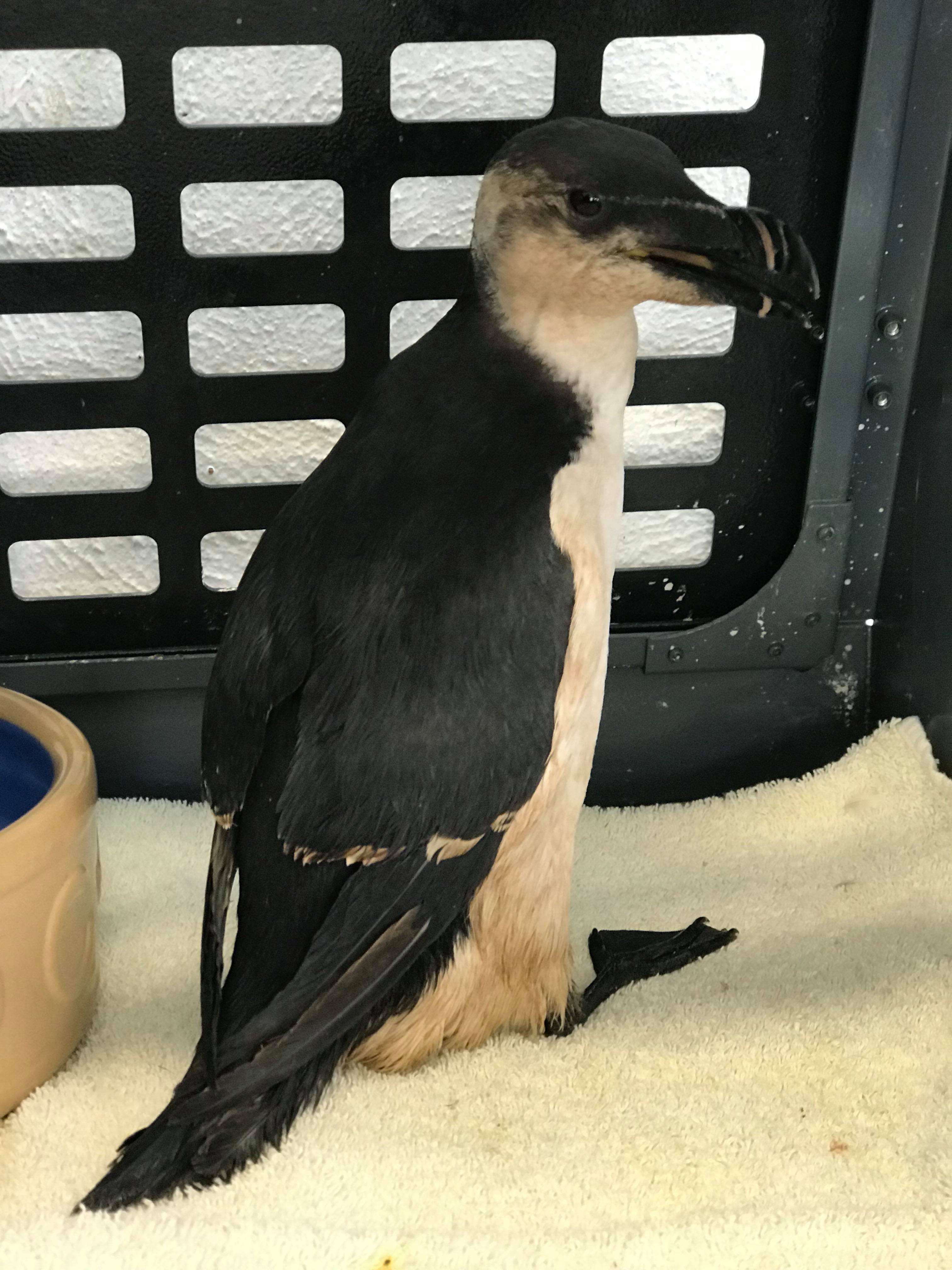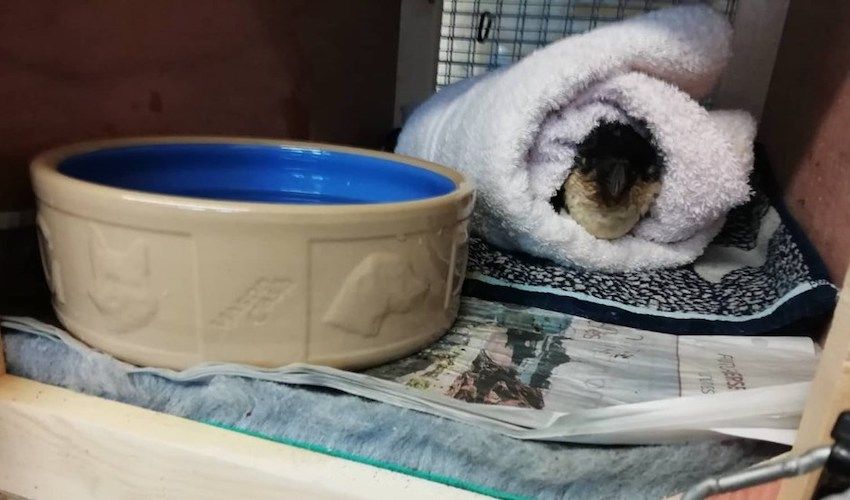While the seabirds normally eat a variety of fish, they are turning their beaks to anything but sand eels at the moment. The staff says that it is really important that they eat frequently so they can keep an healthy weight and recover promptly.
Unfortunately, it's not sand-eel season and the JSPCA is having to purchase packets from the local tackle shops. They have also been trying to contact UK suppliers to see who can assist. The birds are currently consuming £30 worth of packets daily.

Pictured: The seabirds have been chomping on sand eels while at the JSPCA.
The birds, which have all been found in different locations around the island - Bouley Bay, St. Ouen's beach, Grève de Lecq beach and La Rocque harbour, were all covered in oil when they arrived, They could be in the care of the shelter for a minimum of six to eight weeks.
With the possibility that more seabirds could arrive at the shelter, and therefore more sand eels being needed, the shelter has issued an appeal for donations to purchase more. "We urgently need sand eels for five oiled sea birds in our care," the team wrote on Justgiving.
Oiled birds are quite rare at the JSPCA as they only tend to arrive when there has been a spillage. After the GSPCA announced a couple of weeks ago that they had found some, the JSPCA was wondering if any would wound up at the shelter's door.

Pictured: The seabirds could be at the JSPCA for a minimum of six to eight weeks.
"The care is different to injured wildlife as we would assess the animal on arrival and decide if they could be treated or if it is kinder to euthanise," the team explained. "Oiled sea birds are normally healthy apart from being underweight and unable to feed. A few are receiving baths to remove as much oil as possible, being tube fed with charcoal to help with any oil which has been ingested."
The birds are all at different stages but one of them is currently a bit weak. They are being weighted daily to make sure they are gaining weight. Once the team is happy with their progress, they will be moved to a shallow pond where the team will continue able to monitor them and watch them preen.
The final stage will be releasing them to a safe area, but that will only happen when the team is 100% happy with their progress.


Comments
Comments on this story express the views of the commentator only, not Bailiwick Publishing. We are unable to guarantee the accuracy of any of those comments.